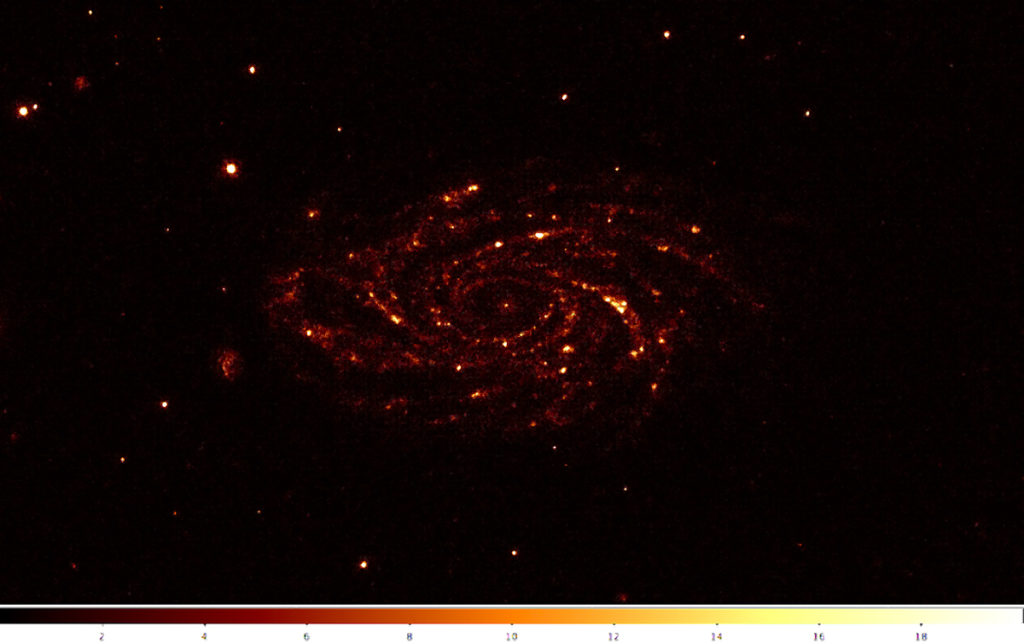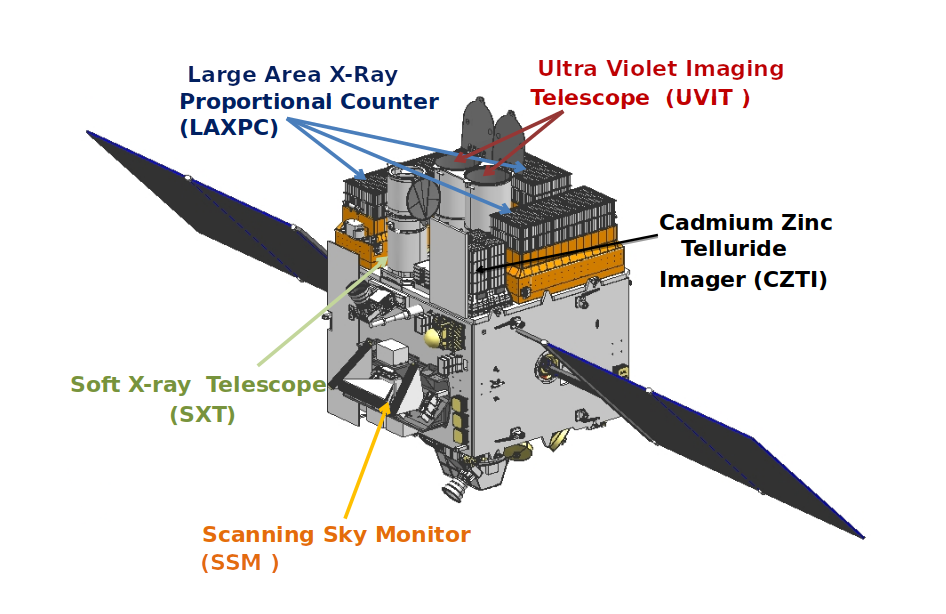Three Canadian researches have been awarded funding for 2022-23 science investigations using the AstroSat astronomy space based observatory.
AstroSat was launched in Sept. 2015 and is India’s first astronomy observatory “dedicated to studying hot, high-energy objects in the universe like young stars and black holes.” Canada was a contributor to the observatory providing the three detectors for the Ultraviolet Imaging Telescope (UVIT) instrument.
The Canadian Space Agency (CSA) states that the primary science objectives of AstroSat are to:
- Understand high-energy activity in star systems beyond our galaxy, including those containing black holes
- Estimate the magnetic fields of neutron stars, to help scientists reach a better understanding of these remnants of stars at the end of their lives
- Detect new sources of brief, bright X-ray light in order to learn more about where these bursts come from
- Perform imaging surveys of the sky in ultraviolet light to measure how often galaxies form new stars, and potentially even discover new types of celestial objects

The CSA did not disclose this year the amount of the funding though we know they did provide $133k in funding last year.
Those receiving funding include:
Prof. Pauline Barmby, Western University
Will combine AstroSat images of the ultraviolet light emitted by a sample of low surface brightness spiral galaxies with data from other telescopes to understand the current and past properties of these enigmatic galaxies and others.
Dr. Denis Leahy, University of Calgary
Will study the stars, stellar clusters, structure and star formation history of the Andromeda Galaxy (M31), NGC 205 and five other nearby galaxies by combining UVIT and Hubble Space Telescope observations.
Will measure the structure of the Hercules X-1 X-ray binary source and investigate the structure of its accretion disk.
Dr. Erik Rosolowsky, University of Alberta
Will use UVIT imaging to measure radiative heating in nearby galaxies and study how the absorbed light can disrupt star formation and even slow down or halt galaxy evolution.
 SpaceQ Space news and analysis.
SpaceQ Space news and analysis.




